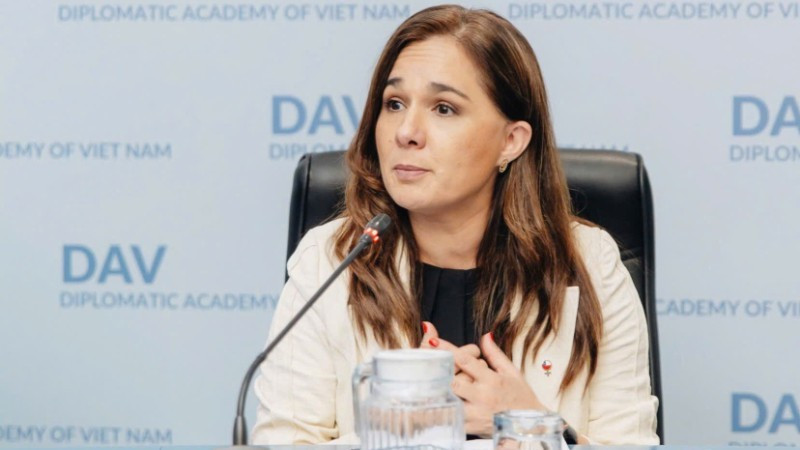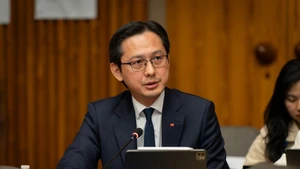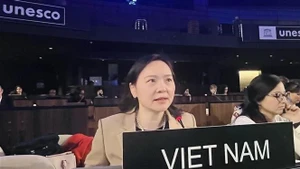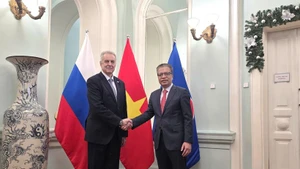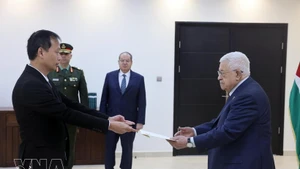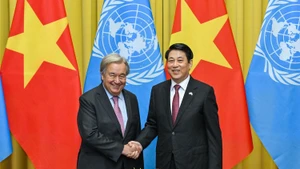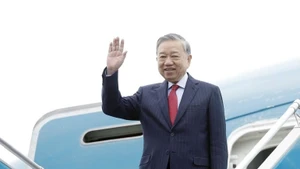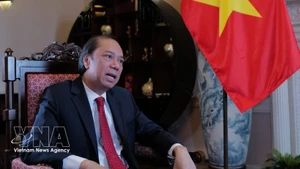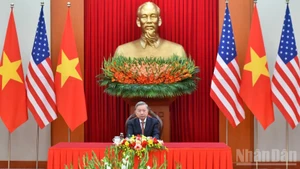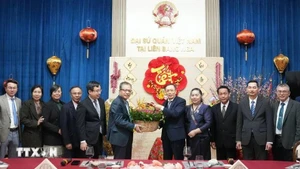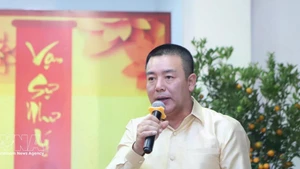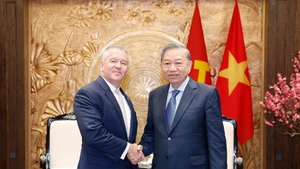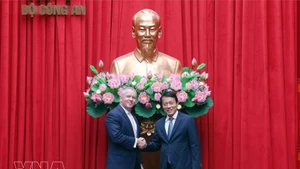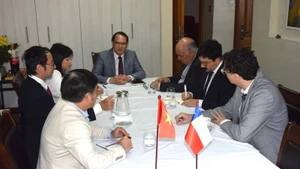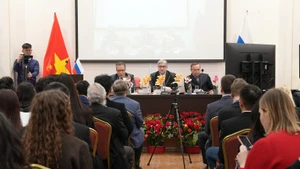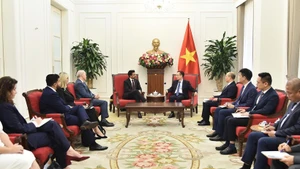According to Gloria De La Fuente, FFP is not merely a policy but a humanistic vision that places people and gender justice at the heart of international relations, reflecting Chile’s strong commitment to democracy, human rights, and inclusive development.
To realise this vision, Chile has built its policy upon a solid legal and practical foundation, rooted in decades of engagement with international conventions and initiatives on women’s rights and gender equality — from the CEDAW Convention (1979) and the Beijing Declaration and Platform for Action (1995) to UN Security Council Resolution 1325 (2000) and the 2030 Agenda for Sustainable Development (2015).
Under the roof of the Diplomatic Academy of Viet Nam in late October 2025, the seminar “Enhancing the Role of Women in Diplomacy” became a meaningful forum to hear the voice of Chile — a trailblazer in Feminist Foreign Policy.
Building on these international commitments, Chile’s FFP has been translated into a concrete action plan structured around eight priority pillars: promoting human rights and democracy; eliminating gender-based violence; expanding women’s participation in social life; implementing the “Women, Peace and Security” agenda; integrating gender perspectives into trade; linking gender equality with climate action; promoting gender equality in science, technology, and innovation; and developing a fair, inclusive care system.
Following its planned roadmap, from 2022 to 2025, Chile has systematically realised these objectives through assessment, institutionalisation, and the publication of the FFP Action Plan.
Beyond its policy framework, Chile’s efforts have already yielded notable results in international cooperation. In her presentation, De La Fuente highlighted key achievements in both bilateral and multilateral engagement — including the signing of memoranda of understanding (MoUs) with countries such as Spain, the US, France, and Canada; active participation in the 4th Feminist Foreign Policy Conference in Paris; and the launch of Chile’s 3rd National Action Plan on “Women, Peace and Security.”
This policy has generated tangible and far-reaching impacts across multiple sectors. Notably, 22.8% of Chile’s Free Trade Agreements (FTAs) now include dedicated chapters on gender and trade, while specific guidelines have been established for anti–human trafficking and humanitarian assistance through the “Dignity Kit” initiative for women and girls in global crisis zones.
To build on the encouraging initial outcomes, Deputy Minister Gloria De La Fuente affirmed that during the 2024–2025 period, Chile continues to focus on three key strategic priorities: strengthening coordination within its foreign affairs agenda; advancing the institutionalisation of the policy; and expanding women’s representation at all levels of diplomacy.
Chile’s experience inspired lively discussions during the seminar, which featured four working sessions attended by delegates from various countries and international organisations. Participants agreed that promoting gender equality in diplomacy is not only a demand of the times but also a driving force for strengthening democracy and achieving sustainable development.
With its inclusive vision, Chile’s Feminist Foreign Policy has become more than an operational framework — it stands as a symbol of human-centred diplomacy, committed to the universal values of peace, justice, and human dignity.
From the distant Andes, Chile’s feminist diplomatic journey continues to illuminate hope for a fairer world — one where women’s rights and dignity are safeguarded through wisdom, courage, and compassion.
